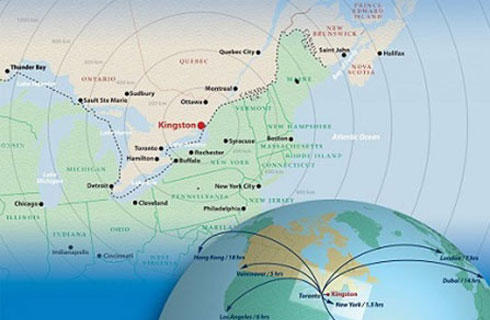商科学士-金融
Bachelor of Commerce - Finance

学历文凭
Bachelor Degree

专业院系
Otago Business School

开学时间

课程时长

课程学费

国际学生入学条件
We recognise many other qualifications as equivalent to the New Zealand qualification for entrance.
We also accept the following international qualifications:
- International Baccalaureate: IB Diploma with a minimum of 24 points.
- Cambridge International Examinations (CIE) GCE Advanced Levels: minimum Numerical Score of 8
- A minimum of CCC across the NCUK IFY
- Satisfactory completion of one year's study at a recognised tertiary institution.
English language requirements
IDP—雅思考试联合主办方

雅思考试总分
6.0
- 雅思总分:6
- 托福网考总分:80
- 托福笔试总分:160
- 其他语言考试:Pearson Test of English (PTE) Academic - Overall score of 50 with no communicative skills score below 42.
CRICOS代码: OO0063
申请截止日期: 请与IDP联系 以获取详细信息。
课程简介
Finance focuses on investments (including portfolio theory); corporate finance (how businesses make internal financial decisions); derivatives (the study of financial securities deriving their value from other assets’ values); and international finance (finance across borders).Finance examines the theory and practice of this process, with particular attention to the measurement and management of risk. It’s about deciding how money is allocated in the real world.Finance is both a science and an art – a science because it systematically analyses information and uses it to make and testpredictions; an art because these activities are not exact and there is frequently no “right” answer.Finance deals not only with the measurable, “quantitative” aspects, but also with the unmeasurable, in which intuition and experience play a strong role. Skills in these areas are invaluable in the workplace.
相关申请
 预科
预科 奖学金
奖学金 实习机会
实习机会 在校学习
在校学习 跨境学习
跨境学习 校园授课-线上开始
校园授课-线上开始 在线/远程学习
在线/远程学习
开学时间&学费
学费信息仅供参考,请与IDP联系以获取详细信息
| 开学时间 | 时长 | 学费 | 地点 |
|---|
学校排名

世界排名201
数据源:
泰晤士高等教育世界大学排名
关于奥塔哥大学

成立于1869年的奥塔哥大学是新西兰第一所大学,拥有丰富而杰出的历史。奥塔哥大学在研究和教学方面享誉世界,在QS世界大学排名中位列全球前1%。奥塔哥大学在商业、健康科学和人文科学等领域提供了大量而多样化的学习选项。学生可以从200多门课程中选择。该大学在就业能力、国际化、教学和研究等方面均被QS评为五星。根据高等教育委员会(TEC)的教育表现指标,奥塔哥大学在学生表现和留存率方面也被评为新西兰第一。这强调了奥塔哥为学生提供的教育质量。该机构在新西兰各地都有校区,在达尼丁、惠灵顿、奥克兰、基督城和因弗卡吉尔都有校区。奥塔哥大学的学生群体也是多元化的,达尼丁校区85%以上的学生来自城市以外,全校有3000名国际学生入学。奥塔哥大学的学生享有良好的毕业成果,95%的学生在毕业后继续深造或就业。
本校相关课程
其他相关课程

Undergraduate Foundation Programme (UFP) - Business, Economics, Finance and Management
 ONCAMPUS伦敦南岸大学中心
ONCAMPUS伦敦南岸大学中心学历文凭
Foundation for Undergraduate
开学日期
课程费用总额


Graduate Certificate in Business (Financial Planning)
 昆士兰科技大学
昆士兰科技大学学历文凭
Graduate Certificate
开学日期
课程费用总额


商学学士学位和理学学士学位-金融和数学
 南昆士兰大学
南昆士兰大学学历文凭
Dual Degree
开学日期
课程费用总额


银行与金融理学硕士
 伦敦布鲁内尔大学
伦敦布鲁内尔大学学历文凭
Masters Degree (Taught)
开学日期
课程费用总额


财务管理硕士
 赫尔大学
赫尔大学学历文凭
Masters Degree (Taught)
开学日期
课程费用总额


MSc Islamic Finance
 邓迪大学
邓迪大学泰晤士高等教育世界大学排名:337
学历文凭
Masters Degree (Taught)
开学日期
课程费用总额










 新西兰
新西兰





